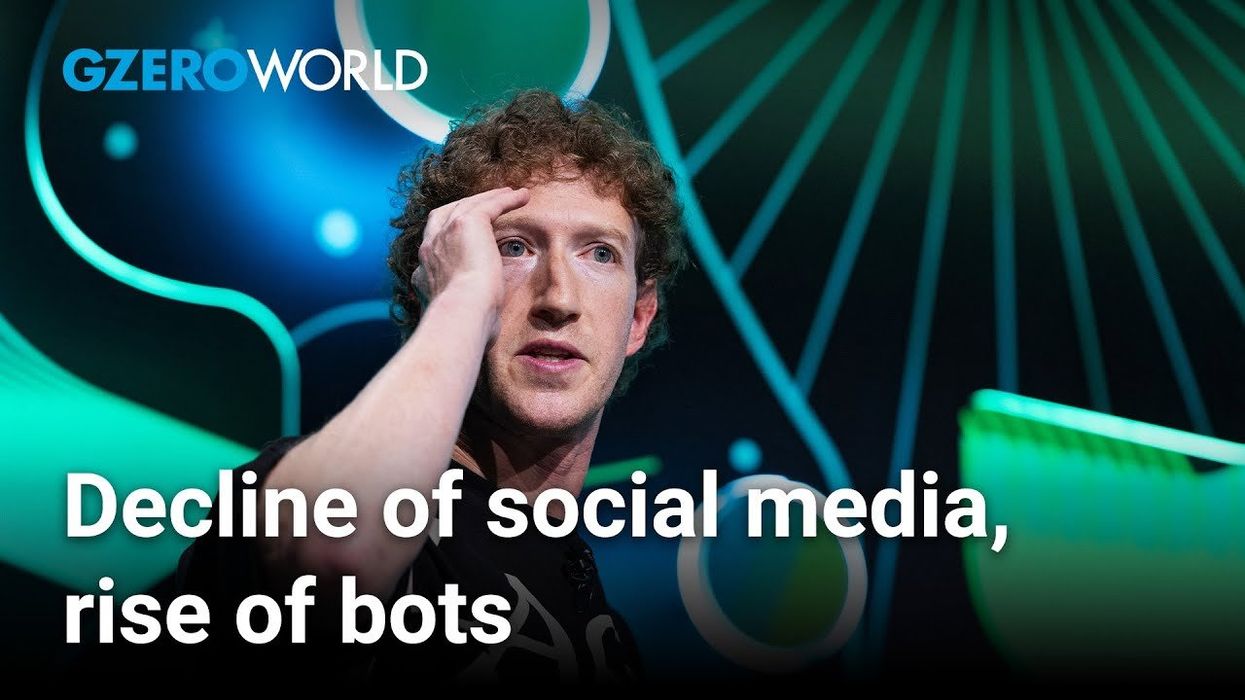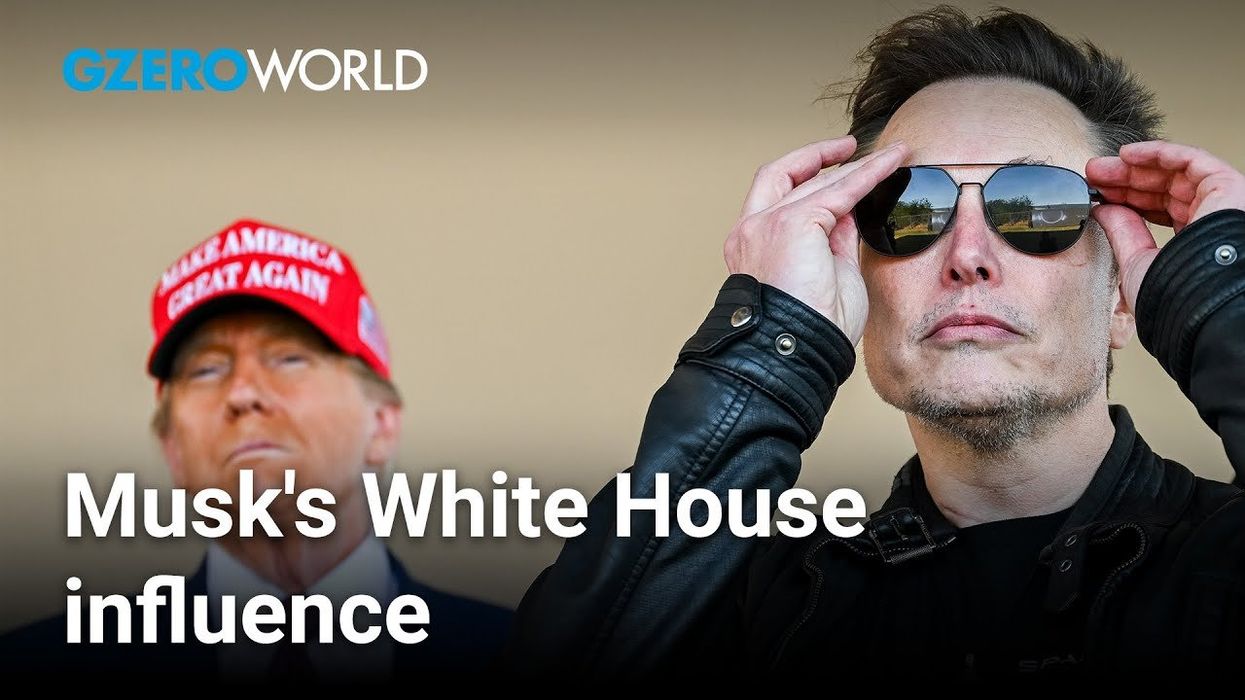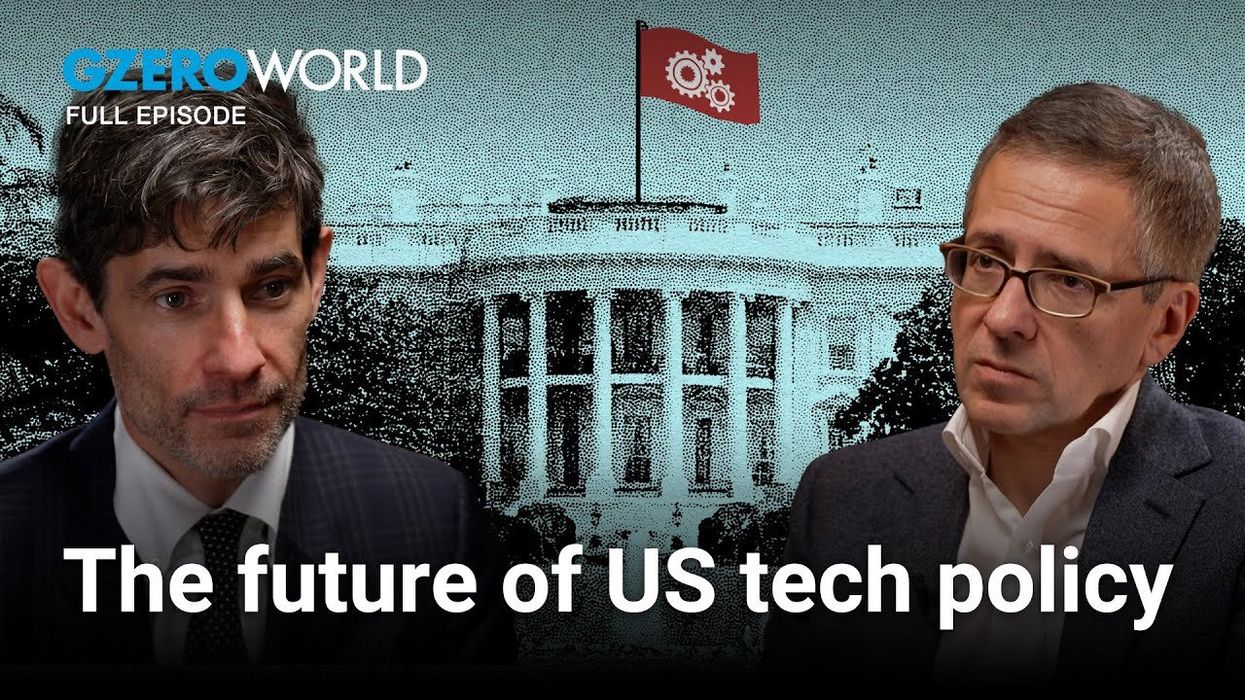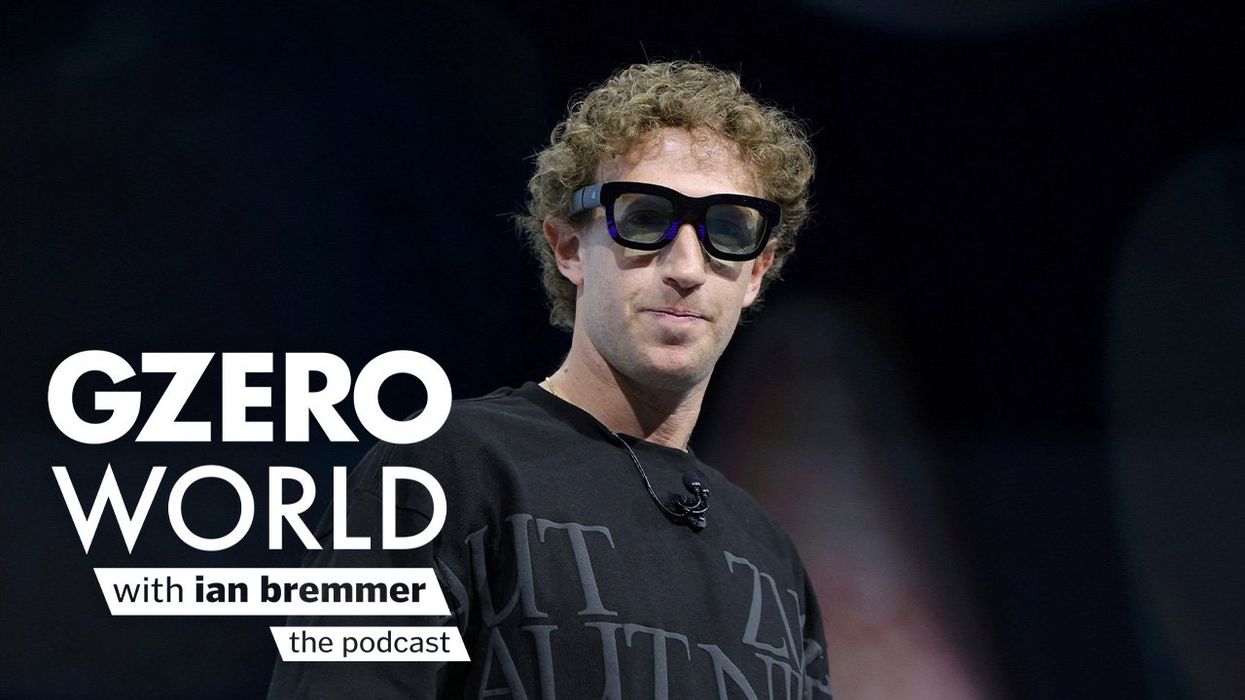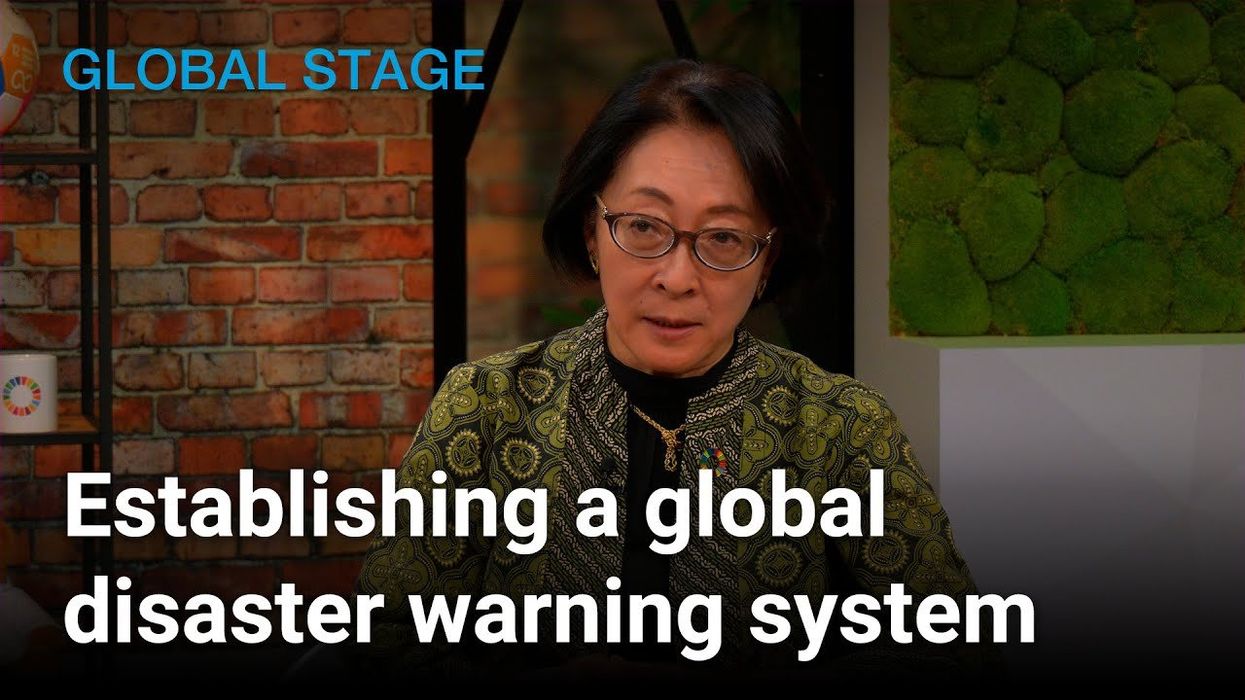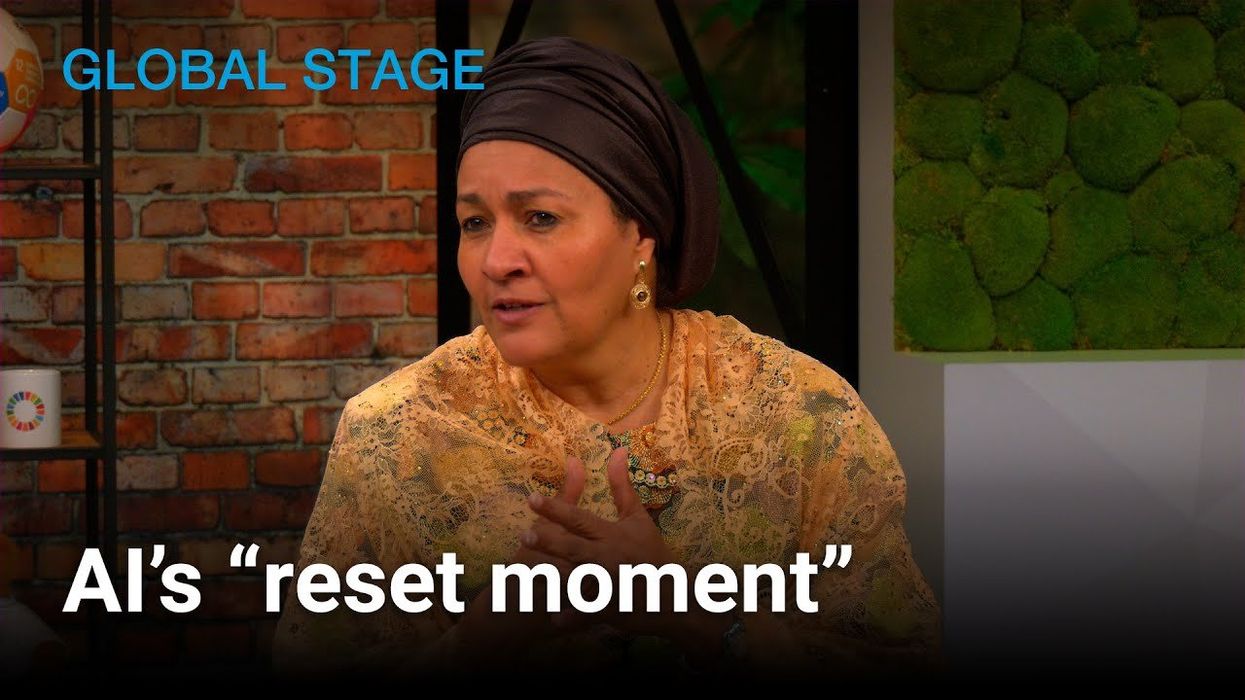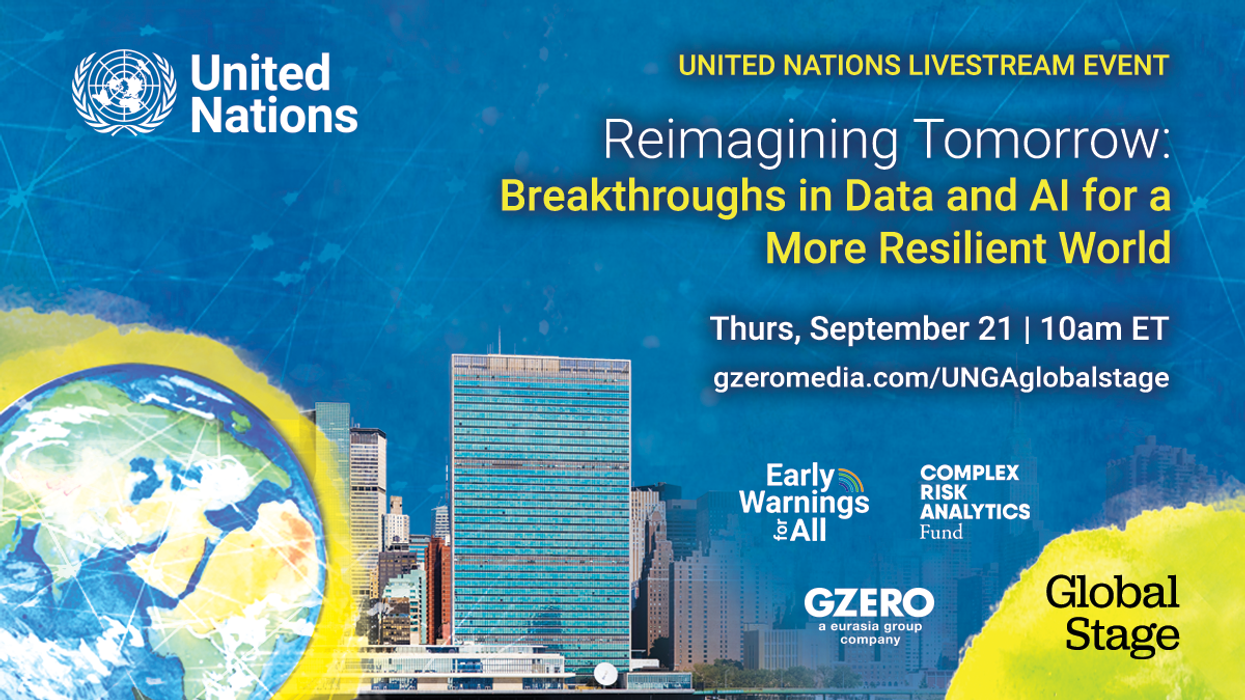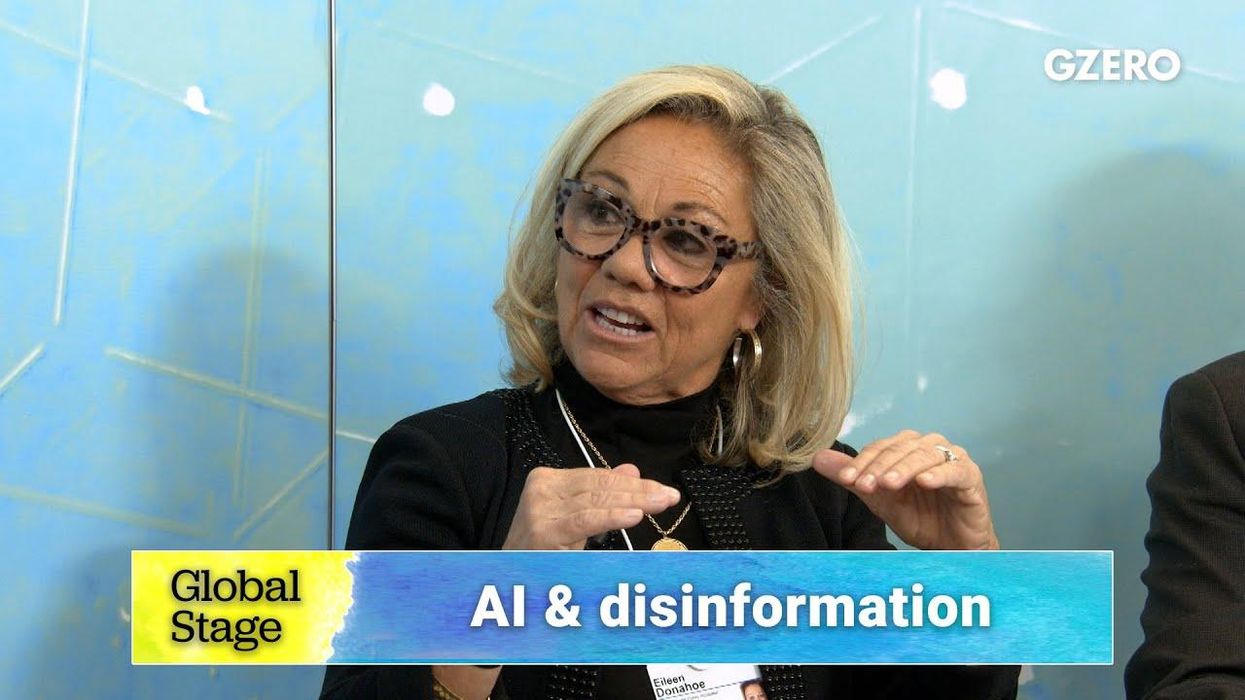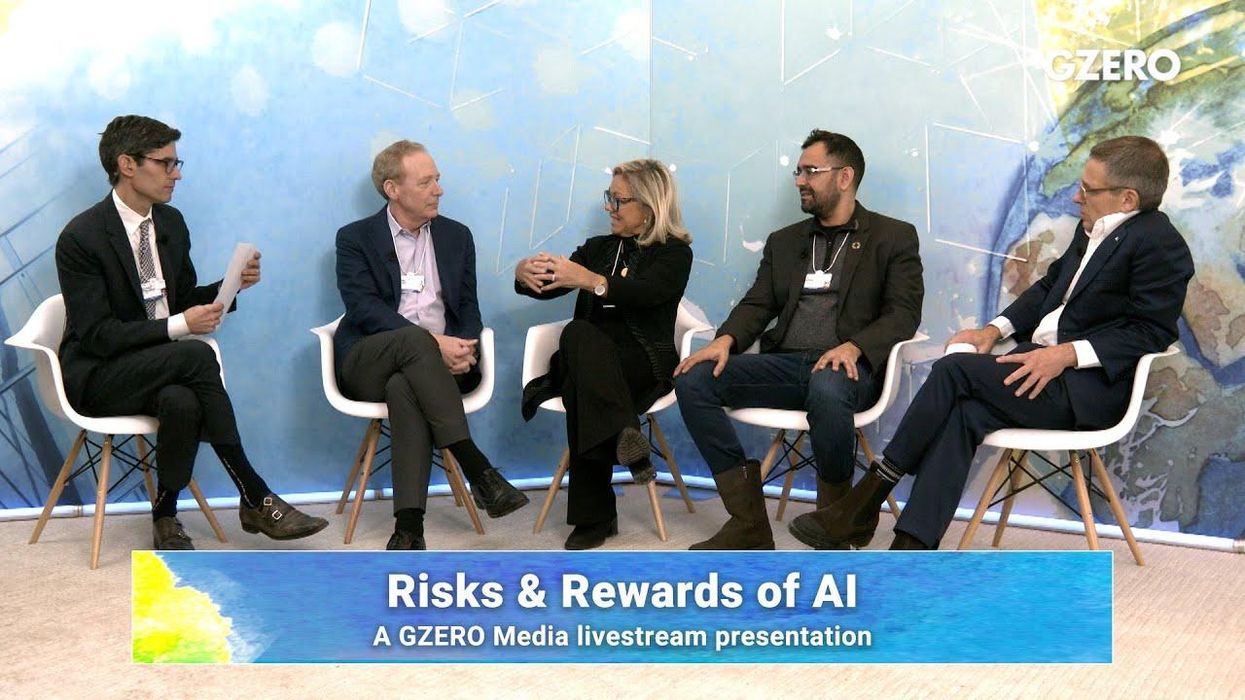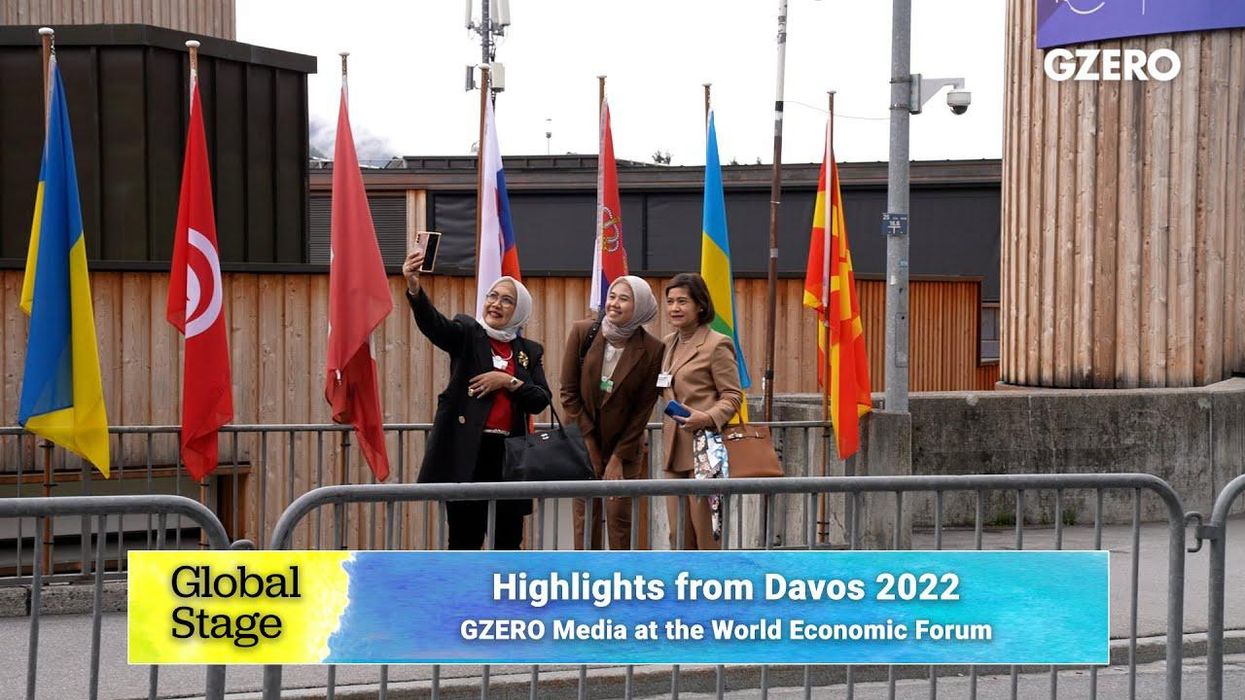GZERO World Clips
Are we heading for a dystopian AI future?
The last five years have brought big changes to social media and the online experience, but are users better off for it? Chatbots and AI-generated content proliferate in social feeds. Twitter/X and, just recently, Meta have stopped fact-checking content to prioritize "free speech." As platforms like BlueSky emerge, toxicity and arguments might decrease, but it also leads to a more fragmented and atomized society, with no 'town square' to debate big issues. On GZERO World, Atlantic CEO Nicholas Thompson joins Ian Bremmer to discuss the seismic shifts in the social media landscape and the implications of AI-driven communication.
Jan 22, 2025
